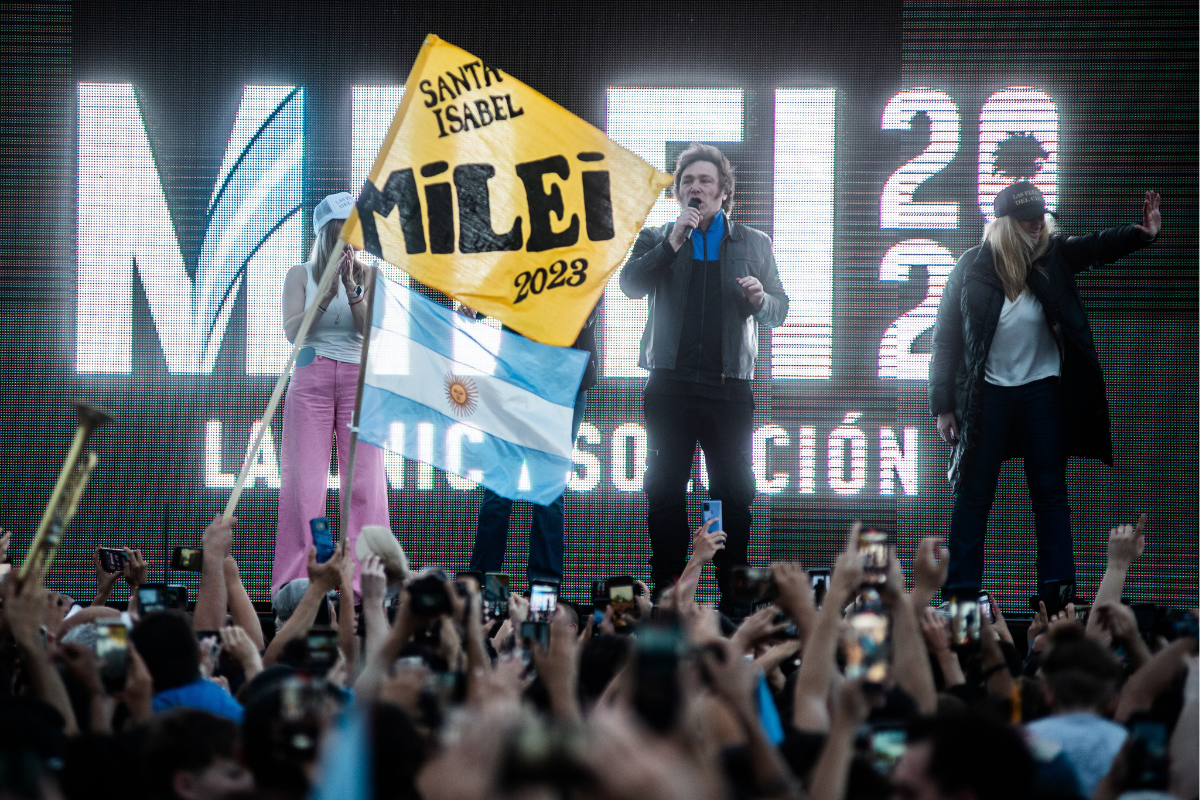Last Sunday, far-right libertarian economist Javier Milei was elected president of Argentina.
Mr. Milei ran on a platform that prioritized market forces to seek policy change. His campaign was highly personalized and inflammatory. His campaign rallies resembled entertainment events, where he promised to “revolutionize everything.”
An anti-incumbency wave has swept Latin America, where ruling coalitions have lost 18 of the last 19 presidential elections. Globally, an anti-establishment wave has brought far-right populists to power in several regions (the Netherlands being the latest).
As a byproduct of this trend, Mr. Milei’s rise to the presidency has a permissive effect on Argentina and other liberal democracies: it banalizes politics.
Politics is now seen as a wasteful, corrupt, and contemptible domain. We are now witnessing its trivialization as more and more candidates run (and win) as representatives of a nonexistent system that relies solely on them to solve ever-complex problems.
In 2010, Brazilians were shocked when a semi-literate professional clown named Tiririca ran for Congress under the slogan “It can’t get any worse than it is now.” His campaign ads featured...


 Search
Search










































